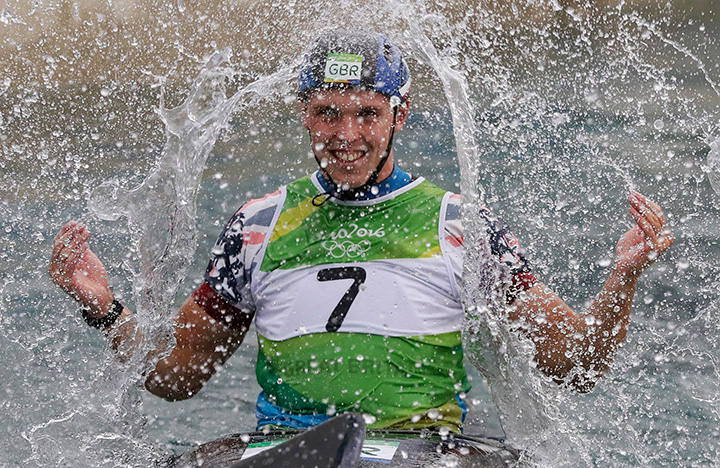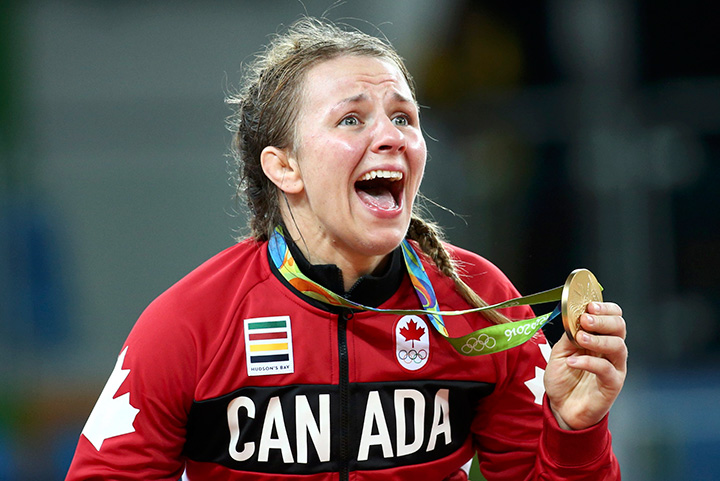While it’s not unusual for the United States to dominate the Olympic Games, it’s not as common to see Great Britain at the top of the medal count.

However, this year’s Summer Games has been exceptional for the country.
It’s not that Great Britain doesn’t win its share of medals. In total, the country has accumulated more than 800 medals in its Olympic history.
READ MORE: Rio 2016— Canada routed by Great Britain in women’s rugby sevens, still advances
However, as of this writing, the country is in third place in the Rio Olympics medal count. And people are taking note.
Many want to know how the Brits are doing it. And it comes down to one thing: money.
Overall, according to Canada’s Own the Podium, it receives $62 million from the federal government, with $34 million allotted to the Summer Games. Provinces also contribute in varying amounts. Individual sports organizations, such as Boxing Canada, Cycling Canada and Swimming Canada all contribute different amounts as well. This year, for example, the organizations provided more than $35 million cumulatively. And not each sport supplies the same amount. Swimming Canada, for example, gave $3.6 million in funding, whereas Archery Canada gave a mere $60,000.
READ MORE: Rio 2016—Best photos from Day 13 of the Summer Games in Rio
Meanwhile, the United Kingdom has funding that totals £350 million between 2013 and 2017. In the four years leading up to Rio, the Own the Podium initiative contributed $139 million.
Own the Podium is the third program to boost funding for Olympians, the first of which was Game Plan ahead of the 1976 Olympics, hosted by Montreal. But clearly that wasn’t enough: Canada became the first host country in Olympic history to fail to win a gold medal. And then we did it again in Calgary in 1988.
Various challenges
The cash just isn’t enough when looked at other major countries.
“In relative terms…we’re still not up to other countries like Britain, France and Australia,” said Bruce Kidd, professor at the University of Toronto’s Faculty of Kinesiology and Physical Education.
But, he acknowledges, Canada has challenges that many countries do not.
“Canada’s a different country because we have a small population, in relative terms, dispersed across a big country.”
Then there’s the money the athletes receive themselves (aside from endorsements). Olympic athletes in Great Britain receive about £36,000 to £60,000 a year from UK Sport, the national funding initiative for Olympic athletes. This allows them to focus on training for most of years leading up to the Games.
Comparatively, Canadian Olympic athletes receive a paltry $18,000, and it hasn’t changed since 2004, making it a challenge for competitive athletes.
“It’s just crazy to me that funding hasn’t increased in more than 10 years,” said Josh Riker-Fox, a retired modern pentathlete who competed at the 2008 Beijing Olympics.
“How are we expected to live and train full time if we’re always worrying about money or having to figure out how to make ends meet?”
Another challenge that faces Canada in its Olympic medal endeavours is that, over the years, the country’s funding has tended to ebb and flow, with efforts like Own the Podium to increase funding.
When funding drops, coaches leave and regional training centres fall behind.
WATCH: How do Canadian athletes earn a living at the Olympics?

Kidd said that Canada also faces the issue most countries do when it comes to athletes: though high-performance athletes are getting better, participation is falling.
“It is nowhere today where it was in relative terms where it was 25 years ago,” he said.
READ MORE: Rio 2016—Usain Bolt and Andre De Grasse’s bromance is the best love story of the Olympics
And that goes back to the money. “Governments don’t spend nearly as much as they should,” he said.
As a result, those young, promising athletes who may not have the ability to pay registration fees for sports, coaching, or equipment and are essentially shut out of advancing.
Despite the challenges that Canada faces, our athletes have performed extremely well at Rio, with 21 medals as of this writing.
“It’s very special and I’m very proud of our athletes,” Kidd said. “They work very hard at it.”
—with files from Brian Hill




Comments